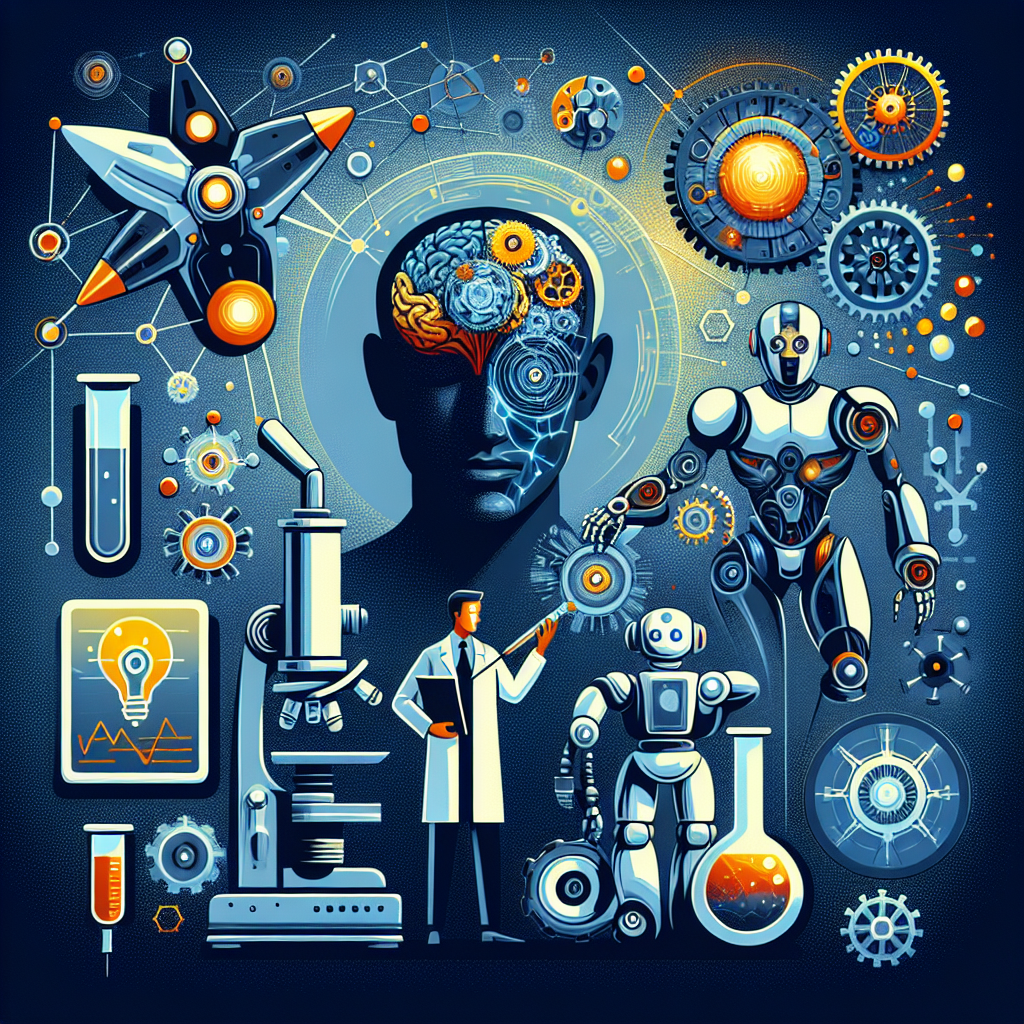The Future of Artificial General Intelligence: A Game Changer for Humanity
Artificial General Intelligence (AGI) is the next frontier in the field of artificial intelligence. Unlike narrow AI, which is designed to perform specific tasks, AGI is a form of AI that can understand, learn, and apply knowledge across a wide range of domains. AGI has the potential to revolutionize the way we live, work, and interact with the world around us. In this article, we will explore the future of AGI and its implications for humanity.
What is Artificial General Intelligence?
Artificial General Intelligence, also known as strong AI or human-level AI, refers to AI systems that have the ability to understand, learn, and apply knowledge in a way that is similar to human intelligence. AGI is not limited to specific tasks or domains, but can adapt and learn new skills and information across a wide range of areas.
AGI is considered the holy grail of artificial intelligence, as it has the potential to revolutionize many aspects of society. AGI systems could perform a wide range of tasks that are currently only possible for humans, such as creative problem solving, critical thinking, and emotional intelligence.
The Future of AGI
The development of AGI is still in its early stages, but researchers and scientists are making rapid progress in this field. Companies like OpenAI, DeepMind, and IBM are investing heavily in AGI research, and are making breakthroughs in areas such as natural language processing, computer vision, and machine learning.
One of the key challenges in developing AGI is creating AI systems that can understand and learn from complex, unstructured data. This requires advances in machine learning algorithms, neural networks, and cognitive science. Researchers are also working on developing AI systems that can reason, plan, and make decisions in a way that is similar to human intelligence.
The implications of AGI for humanity are vast and far-reaching. AGI has the potential to transform many industries, such as healthcare, finance, transportation, and entertainment. AGI systems could revolutionize the way we work, learn, and communicate, and could lead to new breakthroughs in science, technology, and innovation.
AGI could also have a profound impact on society, as it raises ethical, legal, and social questions about the role of AI in our lives. Issues such as privacy, security, bias, and unemployment will need to be addressed as AGI becomes more prevalent in society.
FAQs
What are the key challenges in developing AGI?
Developing AGI is a complex and multi-faceted task that involves many challenges. Some of the key challenges in developing AGI include:
– Understanding and replicating human intelligence: AGI requires a deep understanding of how the human brain works, and how we learn, reason, and make decisions. Replicating these processes in AI systems is a major challenge for researchers.
– Handling complex and unstructured data: AGI systems need to be able to understand and learn from complex, unstructured data, such as natural language, images, and videos. This requires advances in machine learning algorithms, neural networks, and cognitive science.
– Ensuring safety and reliability: AGI systems need to be safe, reliable, and trustworthy. Researchers need to develop AI systems that can make ethical decisions, avoid harmful behaviors, and operate in a way that is beneficial to humanity.
What are the potential benefits of AGI?
AGI has the potential to revolutionize many aspects of society and the economy. Some of the potential benefits of AGI include:
– Improved productivity and efficiency: AGI systems could perform a wide range of tasks that are currently only possible for humans, such as creative problem solving, critical thinking, and emotional intelligence. This could lead to increased productivity and efficiency in many industries.
– Advances in science and technology: AGI could lead to new breakthroughs in science, technology, and innovation. AI systems could help researchers discover new drugs, develop new materials, and solve complex scientific problems.
– Enhanced human capabilities: AGI could enhance human capabilities and help us achieve our full potential. AI systems could assist us in our daily lives, help us make better decisions, and support us in achieving our goals.
What are the potential risks of AGI?
AGI also poses risks and challenges that need to be addressed. Some of the potential risks of AGI include:
– Job displacement: AGI has the potential to automate many jobs and tasks that are currently performed by humans. This could lead to widespread unemployment and economic disruption, as workers are replaced by AI systems.
– Bias and discrimination: AGI systems can exhibit bias and discrimination, as they learn from biased and incomplete data. This can lead to unfair and harmful outcomes for individuals and communities, and can perpetuate existing inequalities in society.
– Security and privacy concerns: AGI systems raise concerns about security and privacy, as they can access and manipulate sensitive and personal data. Researchers need to develop AI systems that are secure, trustworthy, and respectful of individual rights and freedoms.
In conclusion, the future of Artificial General Intelligence is a game-changer for humanity. AGI has the potential to revolutionize many aspects of society and the economy, and could lead to new breakthroughs in science, technology, and innovation. However, AGI also poses risks and challenges that need to be addressed, such as job displacement, bias, and security concerns. Researchers and policymakers need to work together to ensure that AGI is developed in a safe, ethical, and responsible manner, and that its benefits are shared by all members of society.

